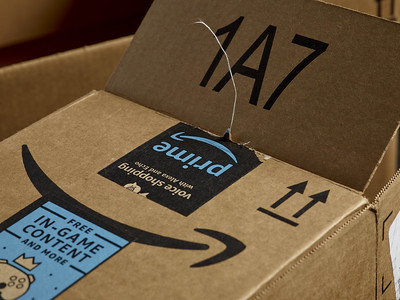Amazon Sued by FTC and 17 States Over Monopoly Power
Aaron Stanway
Staff Writer
CEO, Entrepreneur, born in 1964, now the Federal Trade Commission is knocking on his door. Since 2017, Amazon has been the dominant seller in the e-commerce market. Some estimates show that they now control over 40 percent according to The Associated Press. This majority stake in the market has allowed Amazon to reign supreme and rake in the profits. However, the way that they have been making these profits has garnered the FTC’s attention.
Before that, it is imperative to understand how Amazon.com works. Amazon is a host for different sellers. For sellers that actively hold inventory, Amazon holds their stock in a warehouse and then when a customer orders the product, they ship it. Amazon also has a fulfillment service for drop shippers. This is when a product is bought on a third-party website or sold on Amazon through a third-party seller, the product is shipped from the stock warehouse to an Amazon warehouse where it is then shipped to a customer. These two services make up the majority of e-commerce on Amazon, says The Associated Press.
In exchange for these services, Amazon takes a cut of the sale and charges shipping. This is where trust in Amazon starts to falter. Amazon has been consistently raising the percentage fees. It is up 35 percent since just 2020, writes The Associated Press. Amazon is also forcing sellers to use their fulfillment service to have their products listed on Amazon Prime. Additionally, Amazon Basics, Amazon’s product line, has been undercutting other sellers on their website. Amazon’s product line is artificially kept as the lowest prices by burying undercutters of their product in the far reaches of the Amazon catalog.
Normally, these factors would not raise eyebrows as they are in the nature of competing in the marketplace. However, since Amazon has a majority share in the market these practices have caught the FTC’s attention. It is important to note that Amazon is not being sued because they are too big. Amazon is being sued because they are using their size to stifle competition and stop them from taking their majority share. In addition to the FTC, 17 state legislatures are also attempting to stop what the FTC alleges as a “monopolist that uses a set of interlocking anticompetitive and unfair strategies to illegally maintain its monopoly power.” There has been discussion to break up the tech monopoly that Amazon possesses as they also have a large share of the cloud computing market.
Since this breaking news, Amazon has responded on their website attempting to shift the blame away from themselves. They claim that they are in fact not undercutting competitive prices from sellers but instead matching them to encourage competition. Additionally, Amazon suggests that if the FTC were to win this lawsuit that it would discourage competition across the marketplace. Finally, they finish by saying how much they look out for the small businesses and have created 1.5 million jobs through their fulfillment and seller programs. They also mention that while their fees have been increasing, they are still less than the average two-day shipping service.
Amazon may be forced to stop price matching low prices from sellers leading to more sales for smaller companies. As seemingly distant and unlikely a split up of Amazon is, if it were to happen there would be a huge hole in the marketplace for ecommerce fulfillment services.
Image courtesy of Flickr




